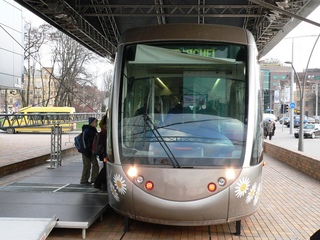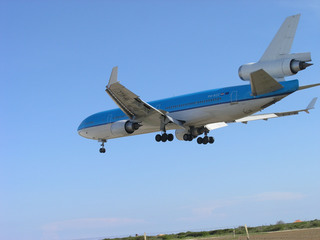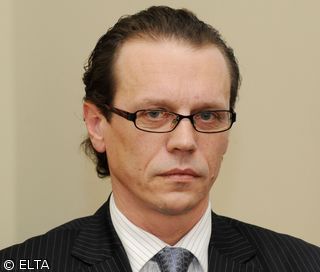The EU has decided to turn to Russia for some of its oil needs to reduce the continent's dependence on OPEC.
Published:
16 October 2000 y., Monday
A long-term agreement with Russia would benefit Europe by allowing it to diversify its energy sources, but it would also force EU officials into some difficult policy choices.
Russia has already indicated that its assistance would come at a price.
Russian deputy prime minister Viktor Khristenko told EU leaders in Brussels a few weeks ago that Russia wants its energy transit to bypass Ukraine. Russian officials widely suspect Ukraine of illegally siphoning off energy and pocketing the profit.
And Russian Deputy Foreign Minister Ivan Ivanov said earlier this week that Russia also wants the EU to drop its support for the Baku-Ceyhan pipeline, sponsored by the US and Turkey. The pipeline, if completed, would bypass Russia.
Observers call the EU proposal for energy cooperation with Russia the "Prodi plan," after European Commission president Romano Prodi. He was the first to present it to Russia.
The plan envisages a swap of Russian energy for EU assistance. It was largely worked out between Germany and the commission.
Russia has large energy reserves, but has little resources to exploit them. The export of gas and oil requires expensive transit facilities.
Under the Prodi plan, the EU would use its political influence and technical assistance to channel foreign investment into Russian energy transit. In return, Russia would guarantee the EU a significant supply of energy for the next 20 years.
Emerson says the EU is likely to promote an even-handed approach to transit routes, supporting the idea of multiple pipelines. This is borne out by the Commission's external relations spokesman Gunner Wiegand, who says the EU has no official strategic preferences. According to Wiegand, the deciding factors as to transit routes must be commercial viability, private sector interest and their multiplicity.
Yet the placing of transit routes has obvious geo-political implications.
Emerson says that while Russia and the United States are involved in what he called "great games" of strategy, the EU was not willing to view its choices in such terms.
The EU does not have a cohesive energy strategy at this stage, but has been prompted into formulating such a strategy by the recent rise in world oil prices and by widespread protests by citizens complaining about high taxes on fuel.
Šaltinis:
rferl.org
Copying, publishing, announcing any information from the News.lt portal without written permission of News.lt editorial office is prohibited.
The most popular articles
 The financial and economic crisis has shown that reckless behaviour of banks and other financial institutions can have serious and costly consequences for Europe's economy and its people.
more »
The financial and economic crisis has shown that reckless behaviour of banks and other financial institutions can have serious and costly consequences for Europe's economy and its people.
more »
 Local services that create jobs and improve energy efficiency received a boost Thursday (2 September) when MEPs on the Industry, Research and Energy Committee approved plans for more investment.
more »
Local services that create jobs and improve energy efficiency received a boost Thursday (2 September) when MEPs on the Industry, Research and Energy Committee approved plans for more investment.
more »
 The European Commission approved the first financing decisions under the EUR 264 million 2010 allocation for the so-called Vulnerability FLEX mechanism to help the most vulnerable African, Caribbean and Pacific countries cope with the impact of the global financial crisis and economic downturn.
more »
The European Commission approved the first financing decisions under the EUR 264 million 2010 allocation for the so-called Vulnerability FLEX mechanism to help the most vulnerable African, Caribbean and Pacific countries cope with the impact of the global financial crisis and economic downturn.
more »
 The European Commission has today updated the list of airlines banned in the European Union to impose an operating ban on one air carrier from Ghana and to place operating restrictions on another air carrier from that country.
more »
The European Commission has today updated the list of airlines banned in the European Union to impose an operating ban on one air carrier from Ghana and to place operating restrictions on another air carrier from that country.
more »
 The European Commission today approved an application from Denmark for assistance under the European Globalisation adjustment Fund (EGF).
more »
The European Commission today approved an application from Denmark for assistance under the European Globalisation adjustment Fund (EGF).
more »
 Algirdas Šemeta, EU Commissioner for Taxation, Customs Union, Anti-Fraud and Audit, will open tomorrow an international conference at the Shanghai World Expo 2010 on building bridges to facilitate trade between China and the EU.
more »
Algirdas Šemeta, EU Commissioner for Taxation, Customs Union, Anti-Fraud and Audit, will open tomorrow an international conference at the Shanghai World Expo 2010 on building bridges to facilitate trade between China and the EU.
more »
 Moldova is set to receive an EU grant of up to €90 million to help it through the financial crisis, following a vote at Parliament's Committee on International Trade on Monday.
more »
Moldova is set to receive an EU grant of up to €90 million to help it through the financial crisis, following a vote at Parliament's Committee on International Trade on Monday.
more »
 Important notice: since May 2010 business surveys data are classified in accordance with an updated version of the Nomenclature of Economic Activities (NACE rev. 2) causing a potential break in series at this date.
more »
Important notice: since May 2010 business surveys data are classified in accordance with an updated version of the Nomenclature of Economic Activities (NACE rev. 2) causing a potential break in series at this date.
more »
 75% of Europeans think that stronger coordination of economic and financial policies among EU Member States would be effective in fighting the economic crisis, according to the Spring 2010 Eurobarometer, the bi-annual opinion poll organised by the EU.
more »
75% of Europeans think that stronger coordination of economic and financial policies among EU Member States would be effective in fighting the economic crisis, according to the Spring 2010 Eurobarometer, the bi-annual opinion poll organised by the EU.
more »
 The European Commission has extended until the end of the year the liquidity support scheme for banks in Slovenia.
more »
The European Commission has extended until the end of the year the liquidity support scheme for banks in Slovenia.
more »